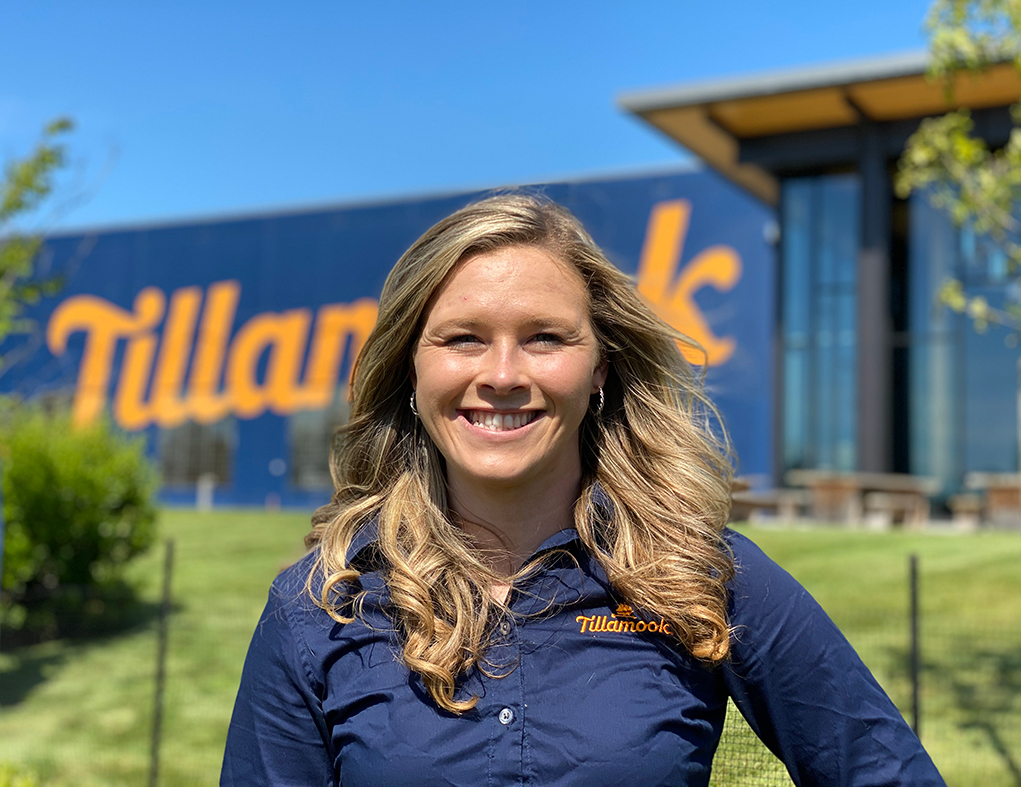The Science of Dairy Farming
Contributor: Dave Wells, Tillamook Working Lands & Waters Cooperative
Through Marisa’s eyes I got the impression that the Tillamook County Creamery Association (TCCA) is like a family business where employees, not just dairy farmers, get a chance to touch a wet cow nose and see where milk comes from. Marisa is part of the co-op’s Farm Services team, which supports its farmer-owners with technical assistance, daily milk quality data evaluation, oversight of milk hauling, on-farm troubleshooting, and discussions of best management practices.
The cows provide milk every day, and Marisa helps ensure that the many streams and rivers are protected. Like all dairy farms in Oregon, the 78 farmer-owners who provide milk to TCCA are required to have a CAFO Permit, which requires them to follow a Nutrient Management Plan. This plan takes into account a farm’s weather, soil, acres and structures to determine how many cows the dairy is allowed to have on site and regulate their manure applications. Marisa offers assistance to the farmer-owners by working with them and helping them follow the sampling protocols established by the state. She helps them sample their soil and manure so that they can analyze the nutrient content and calculate the correct amount of manure to apply to fit their crops need and their soil capacity. These permits help the farmer use science-based calculations to ensure that the land can and is supporting the cows that are living there. It may not sound glamorous doing this type of work, but Marisa sees it differently: “That’s what I like to do, be in the dirt and sample manure.” She is an important part of making sure that water, soil and air are protected.
I asked about how COVID-19 has changed her operations, and she said that they’ve relied on technology more during the pandemic. To bring the latest in technology to the farmers she has been using virtual meetings to meet with the farmers where they are. These meetings started shortly after the pandemic. The Young Cooperators (a group of up-and-coming dairy farmers sponsored by TCCA) have been especially receptive to the virtual meetings having grown up with computers and utilizing advanced dairy technology on their farms daily. TCCA’s Farm Services team and Young Cooperators usually would host in-person workshops and lunch and learns for their fellow farmers. Now adapting to the virtual reality we are living in, they are selecting educational webinars for their fellow farmers to review, then meet and discuss to continue their education.
There is a lot of work to do as a Natural Resource Lead, but it often doesn’t feel like it. Being part of the community Marisa notes that her coworkers and dairy farmers are “some of the hardest working and most caring people I’ve ever met” adding that this work is “vital to the Oregon Coast and Tillamook economy”. “If you like what you do then it’s not work. I love being around big livestock; they’re fun.”

Comments are closed